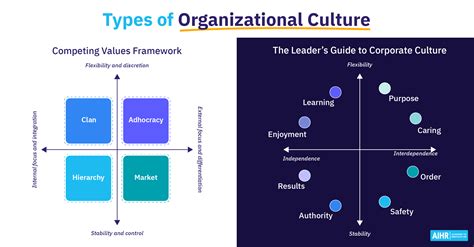Operational culture refers to the shared values, beliefs, and practices that guide an organization’s daily operations. It encompasses the way employees interact with each other, customers, and stakeholders, and influences decision-making, problem-solving, and overall performance.

Definition of Operational Culture
It is important to understand the nuances of defining operational culture. According to a study by the Harvard Business Review, operational culture is “the pattern of shared values and behaviors that govern how people work together and get things done.”
Another definition from the International Society for Performance Improvement (ISPI) defines operational culture as “the set of norms, values, and beliefs that shape the way an organization operates.”
Key Characteristics of Operational Culture
To further clarify the concept, let’s delve into its key characteristics:
- Shared Values and Beliefs: Operational culture is built upon a foundation of shared values and beliefs that guide employees’ actions and behaviors. These values often align with the organization’s mission, vision, and strategic goals.
- Influence on Decision-Making: Operational culture influences how employees make decisions and solve problems. It shapes their priorities, risk tolerance, and communication styles.
- Impact on Performance: A strong operational culture promotes teamwork, collaboration, efficiency, and innovation, which ultimately enhances organizational performance.
- Change Management: Operational culture can be resistant to change, as employees are accustomed to established ways of working. However, it is crucial for organizations to adapt their operational culture to evolving industry trends and customer needs.
Examples of Operational Culture
To illustrate the concept further, consider these real-world examples:
- Google’s “20% Time” Model: Google encourages employees to spend 20% of their work time on personal projects or exploring new ideas. This fosters innovation and creativity.
- Zappos’ Customer-Centric Culture: Zappos has built a reputation for exceptional customer service. Its operational culture emphasizes empathy, personalization, and going the extra mile for customers.
- Toyota’s Lean Manufacturing System: Toyota’s operational culture focuses on continuous improvement, waste reduction, and employee empowerment. This system has revolutionized manufacturing practices worldwide.
Benefits of a Strong Operational Culture
Organizations can reap numerous benefits from a robust operational culture, including:
- Increased Productivity: Shared values and beliefs promote teamwork and collaboration, leading to enhanced productivity.
- Improved Customer Satisfaction: A customer-centric operational culture ensures that employees consistently deliver excellent customer experiences.
- Employee Engagement: Employees feel valued and connected to the organization when they operate within a positive and supportive operational culture.
- Reduced Risks and Errors: A strong operational culture emphasizes accountability, transparency, and risk management, reducing the likelihood of errors and reputational damage.
- Competitive Advantage: A well-defined operational culture differentiates organizations from competitors and creates a sustainable competitive advantage.
Tips for Developing a Strong Operational Culture
Developing a strong operational culture requires a multifaceted approach. Here are some effective strategies:
- Establish Clear Values and Beliefs: Define the core values and beliefs that will guide the organization’s operations. Communicate these values effectively to all employees.
- Foster Open Communication: Encourage open and transparent communication to facilitate the sharing of ideas, concerns, and feedback.
- Promote Collaboration and Teamwork: Create opportunities for employees to collaborate and work together across departments and levels.
- Recognize and Reward Positive Behaviors: Acknowledge and reward employees who embody the desired operational culture values.
- Monitor and Evaluate Culture: Regularly assess the operational culture to identify areas for improvement and ensure alignment with the organization’s strategic goals.
Common Mistakes to Avoid
To avoid pitfalls, organizations should steer clear of these common mistakes:
- Lack of Clarity: Failing to clearly define the operational culture can lead to confusion and misalignment among employees.
- Inconsistent Practices: Operating without consistent practices and procedures can undermine the operational culture and create a sense of disorganization.
- Resistance to Change: Being too rigid and resistant to change can prevent the operational culture from adapting to evolving needs and industry trends.
- Lack of Communication: Insufficient communication about the operational culture can result in employees being unaware or unengaged.
- Lack of Measurement: Failing to monitor and evaluate the operational culture can make it difficult to identify areas for improvement and optimize performance.
Comparison of Operational Culture vs. Corporate Culture
While operational culture and corporate culture are often used interchangeably, they differ in scope and focus:
| Characteristic | Operational Culture | Corporate Culture |
|---|---|---|
| Scope | Focuses on daily operations and employee behaviors | Encompasses the overall values, beliefs, and ways of doing business |
| Influence | Impacts operational decisions, problem-solving, and performance | Shapes the organization’s strategy, reputation, and stakeholder relationships |
| Measurement | Typically measured through employee surveys and performance metrics | Evaluated through brand perception, customer satisfaction, and financial performance |
Pros and Cons of a Strong Operational Culture
Pros:
- Enhanced productivity and efficiency
- Improved customer satisfaction and loyalty
- Increased employee engagement and motivation
- Reduced risks and errors
- Competitive advantage
Cons:
- Can be resistant to change
- May require significant resources to implement and maintain
- Needs consistent monitoring and evaluation
- Requires commitment from all levels of the organization
- Can take time to develop and establish
Conclusion
Operational culture is a critical component of organizational success. By fostering a strong operational culture, organizations can enhance performance, cultivate employee engagement, and create a sustainable competitive advantage. Understanding the concept, key characteristics, and benefits of operational culture is essential for leaders and managers who seek to optimize their organizations’ daily operations and achieve long-term growth.
